Last year, Detroit folk-rock band Bonny Doon made a splash with their self-titled debut. The home-recorded album was full of sun-soaked, hazy folk compositions with earworm guitar riffs, and production that tows the line between raw and pristine. Trying to preserve that sound yet grow as artists, the band retreated to a lake house in Michigan to write their sophomore album, Longwave. The result was songs with more expansive jams, with wistful lyrics about the struggle between uncertainty and self-acceptance.
GB: I know this band began as an outlet for Bill but evolved into a whole band. How did you all meet each other and what brought you together as a band?
Bill Lennox: Bobby and I had a studio and I was helping him with his unfinished solo album and he was helping me work out some songs of my own. Josh, Jake, and I were living together in southwest at the time and I wanted to put a band together so it just made sense for all of us to jam.
GB: I was impressed to learn that your debut album was all home recorded, whereas Longwave was done in the studio proper. What were the challenges you faced and the benefits you received from the two recording methods?
BL: The home recording thing was really all we knew and we like crafting our own sound but it can also be freeing to work in a professional studio with talented engineers. it can give you space to think about the music without having to worry so much about the actual recording process. We are always recording demos on our tape machine still because it’s fun and we like the fidelity of it.
GB: Was the production process streamlined on this album since their was not a whole lot of overdubbing or dense layering on these songs?
Bobby Colombo: No it was still quite a process since we were largely writing in the studio. Plus we did a lot of overdubs but in the end about 90% of them got cut and we just decided to honor the simplicity of how we captured these songs. And then of course mixing always takes us a long time.
GB: Was there any fear of a sophomore slump or any sort of writer’s block that you had to overcome?
BL: We recorded the album a few months after the first album came out so we didn’t really give ourselves any time to rest. Jumping in to it without a whole lot of ideas was liberating because we just kind of went with out first thought with a lot of things, it was pretty spontaneous.
GB: I know firsthand that the Michigan lake house vibe can be reinvigorating and therapeutic. How did that environment help to get the creative juices flowing?
BL: We have done it a few times. We holed up in a house on the Leelanau to record our tape “classical days and jazzy nights” a few years ago. I find that it is just nice to slow down and be in nature in creative situations like that.
GB: You have some great jangly electric guitar sounds on this album. What sort of gear, amps, pedals, production techniques did you use to create the awesome guitar sounds on this album?
BC: We just mic’d everything really close for a 70’s kind of vibe. Bill Skibbe is kind of a mad scientist type brilliant engineer. He builds his own preamps and compressors and has all sorts of nice gear. The board we recorded the album on used to be Sly Stone’s, “There’s a Riot Goin On” was recorded on it.
GB: Did this environment influence the lyrics as well?
BC: Not per se, but I do remember us always sitting around the kitchen table with a notebook and frantically picking up books off the shelf – anything we could find – to spark ideas. Carlos Castaneda was usually fruitful. It was like, “ok we’re gonna do vocals for that one after lunch, so you’ve got an hour to finish it.” I don’t love working like that, but it can be as fun as it is stressful.
GB: What are your writing processes? Do the two of you write together or separately?
BL: We write together a lot. Even when we aren’t writing together in the same room, our ideas are always bouncing back and forth and the finished product is always a collaborative thing. This record had a lot more co-writing than the first.
GB: Having two songwriters in the band, does it help to have someone to bounce ideas off of?
BC: Yeah, I have really just come to rely on that feedback loop to work. I can’t remember the last time I just sat down alone and wrote something and thought, “that’s it.” It’s so much more fun to collaborate, and beyond that, I think it often makes better songs. Bill and I rarely if ever disagree on the quality of a lyric or a riff or anything. We have this shared vision or aesthetic sense, so it’s incredibly affirming to participate in that process. When we arrive somewhere with an idea, it’s always with agreement and certainty.
GB: Tell me about the album title. What is the meaning of Longwave?
BC: It’s a concept someone we encountered one time shared with us, and it resonated. We have used it to guide us since then, it’s been integrated into our internal vocabulary and how we communicate with each other.
GB: I love the encouraging assuring tone of the song “Long Wave,” the lyric “You are who you’re supposed to be,” is lovely. I interpreted it as a sort of self-assurance, as well as advice for the listener, was that the intention?
BC: The song is just sort of a meditation on self-compassion, and taking a few steps back, as many steps back as you can, to see things from a broader perspective…yourself, your life, everyone you know, everything.
GB: Some of your lyrics have an almost self-deprecating sense of humor, while also being very powerful and relate-able (on songs like “A Lotta Things” and “I Am Here”) do you try and approach songwriting with some levity or is it a more serious affair?
BL: I try to approach most things in life with a sense of humor. I cant help but look at the world that way and it’s a big part of how I write.
GB: On “Saw A Light” you say you didn’t have a song so you “borrowed an old one” That’s a fun meta concept, what was the inspiration for referencing the Rolling Stones in this way?
BC: I was taking part in a healing ritual in Northern Michigan, part of which involved people staying up all night, sitting in a circle and singing sacred songs, whatever that meant to you. I was embarrassed that I had nothing I felt was appropriate to play, and the only thing I could muster to contribute was a cover of “Wild Horses.” So I came home and wrote a song about it, my own holy song I guess.
GB: Your sound is very relaxed yet very catchy and engaging. Is it challenging to balance those two aspects?
BL: We are trying to be as authentic as possible. I hope that is what’s resonating with people or what is engaging about it.
GB: These songs feel very vulnerable and personal. Is baring your soul like this challenging or cathartic or a little of both?
BL: I find it to be both challenging and cathartic like any labor of love. I mean, most of my lyrics come from the thoughts and feelings and observations that I write down in my phone or in my notebook. It’s all a kind of commentary on my experience rather than a proper “song” with any obvious storyline, it’s more abstract I guess.
GB: Do you plan to employ the “Lake House Effect” for future albums or will you go up in the mountains or to the Grand Canyon or something next time?
BL: I just want to be in nature and free to roam around without the everyday life distractions of the city. We just want to be able to open our minds and breathe fresh air and only think about the music. (photo provided by artist)
Facebook | Instagram | Twitter


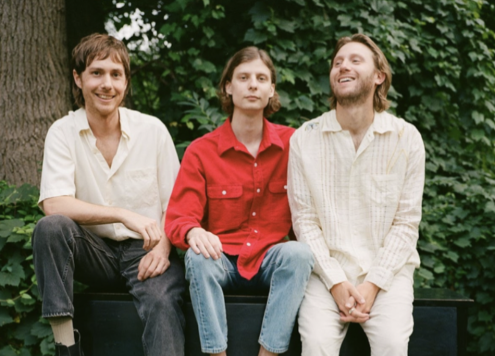
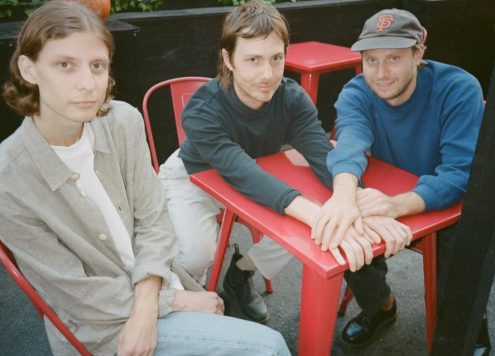

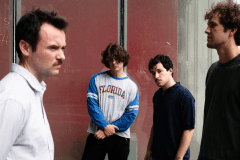
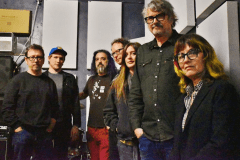
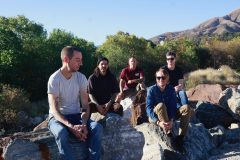
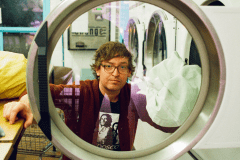

Social Media